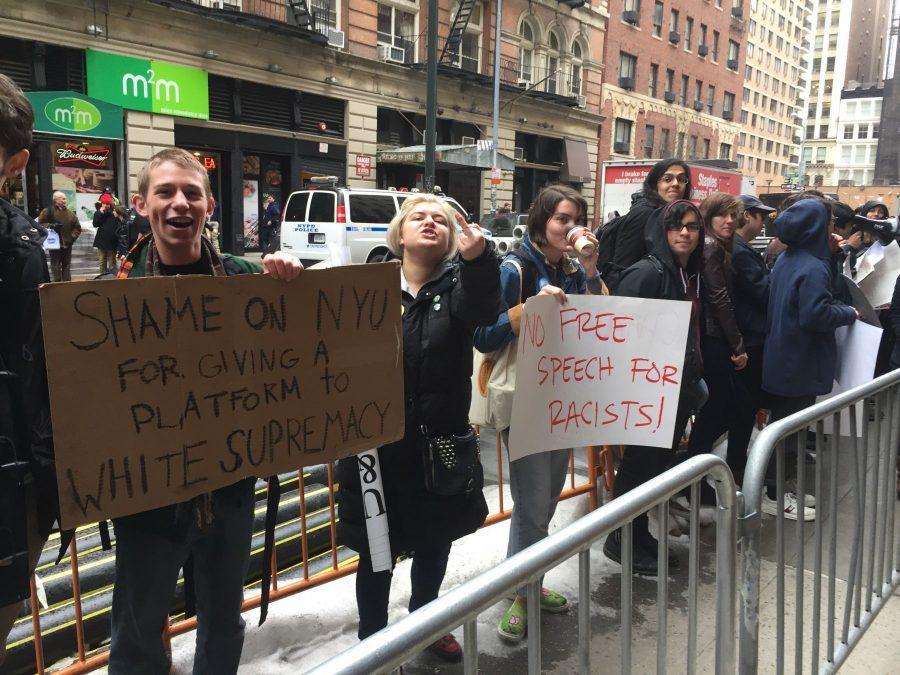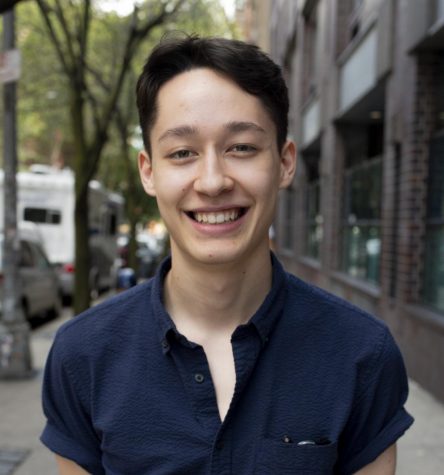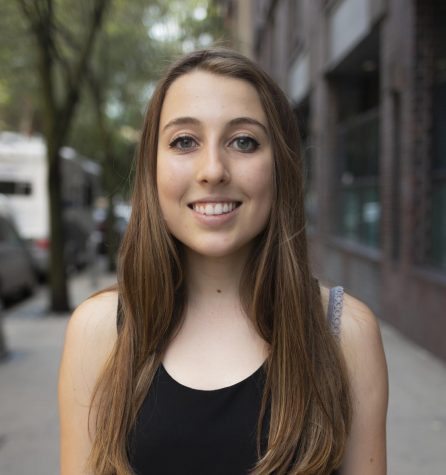Author Charles Murray’s Speech Met With Protests
Charles Murray has been criticized for his book “The Bell Curve,” which links intelligence. Faculty and students have expressed their disapproval of the event.
March 24, 2017
Those who attended Charles Murray’s talk at NYU’s Torch Club today were met with shouts of “shame” from a wall of protesters as they left the building.
Murray, a well-known libertarian conservative author, began the talk — which was hosted by the American Enterprise Institute’s NYU Executive Council but was not co-sponsored by any on-campus groups — saying that the lecture would not be controversial. Nonetheless, protesters continued to surround the building and yell throughout his visit.
Yesterday, the Faculty of Color Caucus also voiced their concern about Murray’s visit in a letter to President Andy Hamilton and Provost Katherine Fleming.
“We, the undersigned NYU faculty, were dismayed to learn today that Charles Murray will be speaking on campus on Friday, March 24,” the letter said. “While we are committed to free speech and the robust exchange of ideas, many things about this invitation trouble us.”
Protestors outside the Torch Club yell “shame” as individuals leave Murray’s speech pic.twitter.com/VvGIQOy5Ts
— Jemima McEvoy (@JemimaNews) March 24, 2017
The letter cited his largely discredited 1994 work “The Bell Curve,” a lack of information regarding the event and student discomfort and vulnerability as their concerns regarding the talk. Nearly 150 faculty members signed the letter.
In a letter responding to faculty concerns, President Andrew Hamilton clarified that the lack of publicity for this event cannot be credited to the university but rather the group that hosted the talk. Hamilton also said that Murray’s appearance is not an abdication of either the university’s obligations or its mission.
“To the contrary: The free expression of ideas is a core principle of our university,” Hamilton said in the letter to faculty. “In line with that, we have long permitted students to invite speakers to campus, some of whom have been controversial — though one always hopes the invitation was issued in the spirit of intellectual inquiry rather than because of the controversy.”
CAS junior Xavier Malaussena and chair of the American Executive Council’s New York City chapter said that Murray was originally going to come to the university as part of a larger panel but the plan fell through.
“Originally for the panel we wanted someone big to start off and someone who could talk about populism and cultural divides,” Malaussena said. “We were just happy to have Charles Murray talk about these things in a more Murray-esque way.”
Some students such as Steinhardt sophomore Lysander Reid-Powell, who protested outside of the event, said that although the university may not necessarily endorse these views, he is disappointed that NYU is giving Murray a platform at all.
“I think it’s disgusting that our school would give a platform to a eugenicist pseudo-scientist white supremacist,” Reid-Powell said.
Reid-Powell said that he wanted to enter the building, but he thinks that all of the tickets were snatched up before protesters had a chance to get hold of any.
NYU spokesperson John Beckman also responded to questions about the reason for Murray’s appearance at the university, and said that NYU’s presumption is that if a student or faculty group invite a speaker to campus, then the event will go forward and the speaker will be able to share his or her views.
“Whether those views are controversial is not the key issue,” Beckman said. “Over time, NYU has hosted numerous controversial speakers or events; those events have gone forward even when there were calls for them to be cancelled.”
Beckman said that the university respects the right of NYU community members to protest the views with which they disagree, but that it is important to distinguish that the presence of any particular speaker at the university is not an endorsement of the speaker’s views.
“Rather, it is an indication of NYU’s commitment to the free exchange of ideas,” Beckman said. “Advocates speak on a large range of issues at NYU; their doing so does not enable them to lay claim to NYU’s agreement with their views, much less our endorsement.”
Email Jemima McEvoy and Sayer Devlin at [email protected].













































































































































Veronica • Mar 27, 2017 at 11:12 am
No, we say losers are trying to distract attention from us protesting white supremacists gaining legitimacy through affiliation with our campus. 😀
Hahahaha • Mar 27, 2017 at 2:28 am
And they say New Yorkers have class:D
Veronica • Mar 25, 2017 at 11:40 am
So white supremacism promoted by millionaires with Harvard degrees is contradictory to elitism? I guess this is the sublime level of reasoning elitist Manhattan institutions lack. Thank God there are no-life trolls to educate us through website comments.
🙂
make trolling great again • Mar 25, 2017 at 11:03 am
both the left and the right ignore science as per their political tendencies
http://infoproc.blogspot.com/2017/03/everything-is-heritable.html
Arafat • Mar 25, 2017 at 8:39 am
Free exchange of ideas? Who are you kidding? We are a liberal, Manhattan, elitist institution. We are not interested in hearing anything that does not support our bubble.